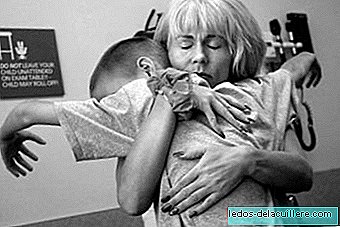
Not giving vaccines to children is not a decision that affects only the children in question, but not vaccinating children endangers the health of everyone, so there are places where measures have been put in place so that That does not happen. As announced by the Italian Society of Pediatrics, the Italian region of Emilia-Romagna it will require to be aware of the vaccinations included in the vaccination calendar for children under three years of age trying to access daycare centers, public or private.
The reason why this measure has been taken is in the reduction of vaccine coverage at 12 months, which has decreased from 96.5% in 2010 to 93.4% in 2015. It is therefore close to the figure of a child for vaccinating every ten, with the public health risk that this entails. In Italy there is fear of a possible return of diseases that were believed to be almost eradicated, such as polio, diphtheria and tetanus.
The health authorities of the Italian region believe that, having means for disease prevention, this situation is unacceptable and that the right of some families not to vaccinate interferes with the right to health of the majority. As the region has powers to establish the requirements for access to schools for children under three years of age, it has decided to use this strategy to combat the continued reduction of vaccine coverage.
The measure will take effect in the month of June and will generate some controversy as always in these cases. The new regional regulations, which comes after extensive debate, require that parents of children up to three years of age present, at the time of enrollment in the centers, the documentation that certifies that their children have received the vaccines provided by Italian health .
It is not a new performance in the world. In California, a vaccination law was passed a few months ago whereby every child enrolled in a public or private daycare center has to keep vaccinations up to date (also to enter preschool, elementary school, high school or high school).
Regarding other measures, we saw that in Australia tax benefits would be withdrawn if children were not vaccinated. From the other side, we have treated cases of children who cannot go to school because their classmates are not vaccinated.
Precisely this last case of a girl with immunodeficiency with eight unvaccinated classmates occurred in Italy, a country that according to the WHO, is in a situation close to the limit from which diseases can no longer be controlled effectively (with about 358,000 unvaccinated children). For example, in the case of measles virus, 92% coverage would be necessary: below that figure it cannot be controlled.
And lately there are rare cases of measles outbreaks, as we have commented on the blog: measles has increased considerably in recent years due to the decline in vaccination coverage. In some areas of the United States, coverage is well below the safe figures, reaching 70% at times. Is this the future we want for our children?
In any case, although it may be an important step that the Emilia-Romagna region will undertake (children will have time until June 2017 to catch up on vaccines), so that the measure is effective maybe should be extended to Higher and compulsory educational levels, since it is upon arriving at school when many children who have not previously gone to daycare centers are incorporated. And although they are already in school, children have not developed a magical immunity to diseases.
Before finishing, we remind you of the last flu vaccination campaign and we will be attentive to the news of the vaccination calendar in Spain for next year. What do you think of this measure to control childhood diseases? Or does it seem good to limit entry to daycare to unvaccinated children?












